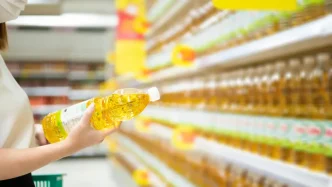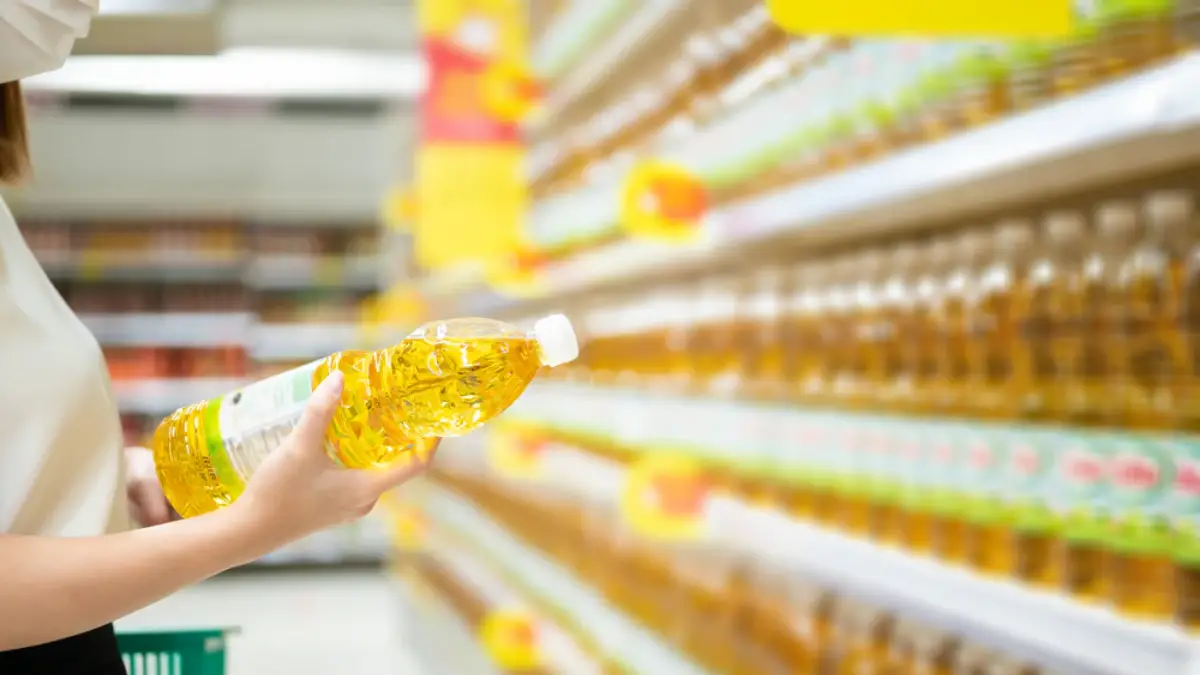In Malaysia, a growing controversy over the repackaging of subsidised cooking oil as “prayer oil” for religious rituals has sparked outrage among consumer advocates and officials alike. The Penang Hindu Association (PHA) has raised alarms about unscrupulous suppliers profiting by over 200% through deceptive practices, urging authorities to impose stricter regulations and enforce transparency in the trade of prayer oil. As the issue threatens to undermine Malaysia’s subsidy system—designed to support low-income households—questions loom over enforcement and consumer protection in the country.
From Cooking to Prayer: A Profitable Deception
The heart of the issue lies in the stark price disparity between subsidised cooking oil and the so-called prayer oil sold in temple supply stores across Penang. According to Datuk P. Murugiah, president of the PHA, bottles of prayer oil retailing at nearly RM9 (~US$1.90) per litre are often nothing more than repackaged subsidised Malaysian cooking oil, which costs just RM2.50 (~US$0.53) per litre at its intended price point. This repackaging, he claims, allows suppliers to rake in profit margins exceeding 228%, exploiting a loophole in the system meant to keep essentials affordable for the B40 group—Malaysia’s lowest-income bracket.
“We found that most of the ‘prayer oil’ sold in the state, especially in temple supply stores, is actually repackaged subsidised cooking oil, originally priced at RM2.50 per litre,” Murugiah told local media. “One particular brand is now being sold at RM8.20 per litre in the open market as oil for ritual use. Some brands cost even more.”
Malaysia’s subsidised cooking oil, typically distributed in locally packed polybags, is a cornerstone of government efforts to ease the financial burden on vulnerable households. However, Murugiah warns that unchecked exploitation of this subsidy not only inflates prices for consumers but also strains domestic oil supplies, impacting honest retailers and the broader market. “The practice, if left unchecked, will defeat the purpose of the subsidy meant for the B40 group,” he added.
A Persistent Problem with Historical Roots
This is not the first time such deceptive practices have come to light. In 2023, Malaysia’s Domestic Trade and Cost of Living Ministry (KPDN) uncovered a case where a trader was caught repackaging subsidised cooking oil into different containers and marketing it as prayer oil at exorbitant rates. Some suppliers have even gone as far as adding color dyes to the oil to mislead both consumers and authorities, according to Murugiah. These tactics highlight a systemic issue that has persisted despite sporadic enforcement efforts.
“The issue is not new,” Murugiah noted. “We hope the ministry will look into this and carry out frequent spot checks at retail outlets, especially those selling religious paraphernalia.” His call for action underscores a broader frustration with the lack of consistent oversight, particularly in markets catering to religious and cultural needs where trust is paramount.
In response, Penang KPDN director S. Jegan affirmed the ministry’s commitment to tackling the misuse of subsidised goods. “Action will be taken against anyone involved in the misuse of subsidised goods,” he said. “The ministry is consistently monitoring the use of cooking oil, not only supply issues, but also its misuse, including for religious rituals as highlighted by PHA.” However, Jegan also noted that no official complaints have been lodged on the matter, suggesting a gap between public awareness and formal reporting that may hinder enforcement.
Proposed Solutions: Transparency and Tracking
Beyond spot checks, the PHA has proposed concrete measures to curb the abuse of subsidised oil. Murugiah is pushing for stricter labelling regulations that would require prayer oil traders to declare the source of their products and clearly list retail prices on packaging. “This is in line with labelling laws and to ensure consumers are not misled,” he explained. Such transparency, he argues, would empower consumers to make informed choices and hold suppliers accountable.
Additionally, the association supports the nationwide expansion of the Cooking Oil Price Stabilisation Scheme (eCOSS), a digital tracking system designed to monitor the supply chain of subsidised oil from refinery to retail. Murugiah believes eCOSS could close existing loopholes exploited by rogue suppliers, ensuring that subsidised goods reach their intended recipients without diversion into profiteering schemes. “It could plug the loopholes currently exploited,” he said, emphasizing the potential of technology to safeguard Malaysia’s subsidy framework.
At the consumer level, Murugiah urged vigilance. “It is important not to be misled by unscrupulous parties,” he advised, encouraging individuals to scrutinize the source of oil purchased for prayer use. This call to action reflects a broader need for public awareness in combating deceptive practices, especially in culturally sensitive markets where trust can be easily exploited.
Broader Economic and Social Implications
The prayer oil controversy touches on deeper issues within Malaysia’s economic and social fabric. Subsidies for essentials like cooking oil are a lifeline for millions in the B40 group, who often struggle to afford basic necessities. When these subsidies are diverted for profit, the ripple effects are felt not only in household budgets but also in public trust toward both the government and private sector. Honest retailers, too, face unfair competition from suppliers willing to cut corners, potentially distorting local markets.
Moreover, the issue raises questions about cultural exploitation. Prayer oil holds significant value in Hindu rituals, often used in temple ceremonies and personal worship. Repackaging subsidised cooking oil as a sacred product not only misleads consumers but also risks undermining the sanctity of these practices. For communities in Penang and beyond, this is more than an economic grievance—it’s a matter of respect for religious traditions.
From an enforcement perspective, the KPDN’s acknowledgment of the issue is a start, but the absence of formal complaints highlights a critical barrier. Without documented grievances, authorities may lack the impetus or resources to prioritize investigations, especially in niche markets like religious supply stores. Jegan’s assurance that “enforcement officers will continue to act under all relevant laws” offers some hope, yet the effectiveness of these measures remains to be seen in the face of persistent loopholes.
Regional Context: A Malaysian Challenge with Wider Echoes
While this scandal is rooted in Malaysia, it echoes broader challenges across Southeast Asia, where subsidies and price controls on essentials often clash with market realities. In neighboring countries like Indonesia and Thailand, similar issues with subsidised goods—be it fuel or food—have led to black markets and profiteering. Malaysia’s struggle to protect its cooking oil subsidy system could serve as a case study for the region, where balancing affordability with enforcement remains a perennial policy dilemma.
In Malaysia itself, the prayer oil issue adds to ongoing debates over subsidy reform. Critics argue that blanket subsidies, while well-intentioned, are prone to abuse without robust monitoring. Proposals for targeted subsidies—where aid is directed specifically to verified low-income households—have gained traction in recent years, though implementation remains complex. The eCOSS initiative, if successful, could provide a blueprint for digitizing subsidy distribution, reducing leakage, and ensuring accountability at every stage of the supply chain.
Looking Ahead: Regulation or Exploitation?
As the PHA continues to press for action, the prayer oil controversy stands as a test of Malaysia’s commitment to consumer protection and economic equity. Will the KPDN’s promised monitoring translate into meaningful reform, or will loopholes persist, allowing unscrupulous suppliers to profit at the expense of vulnerable communities? The rollout of eCOSS and potential labelling laws could mark a turning point, but only if paired with rigorous enforcement and public engagement.
For now, consumers in Penang and across Malaysia are left to navigate a market fraught with deception, where even sacred rituals are not immune to exploitation. As Murugiah and others await stronger safeguards, the question remains: can trust be restored in a system so easily gamed, or will the cost of faith continue to rise?
















